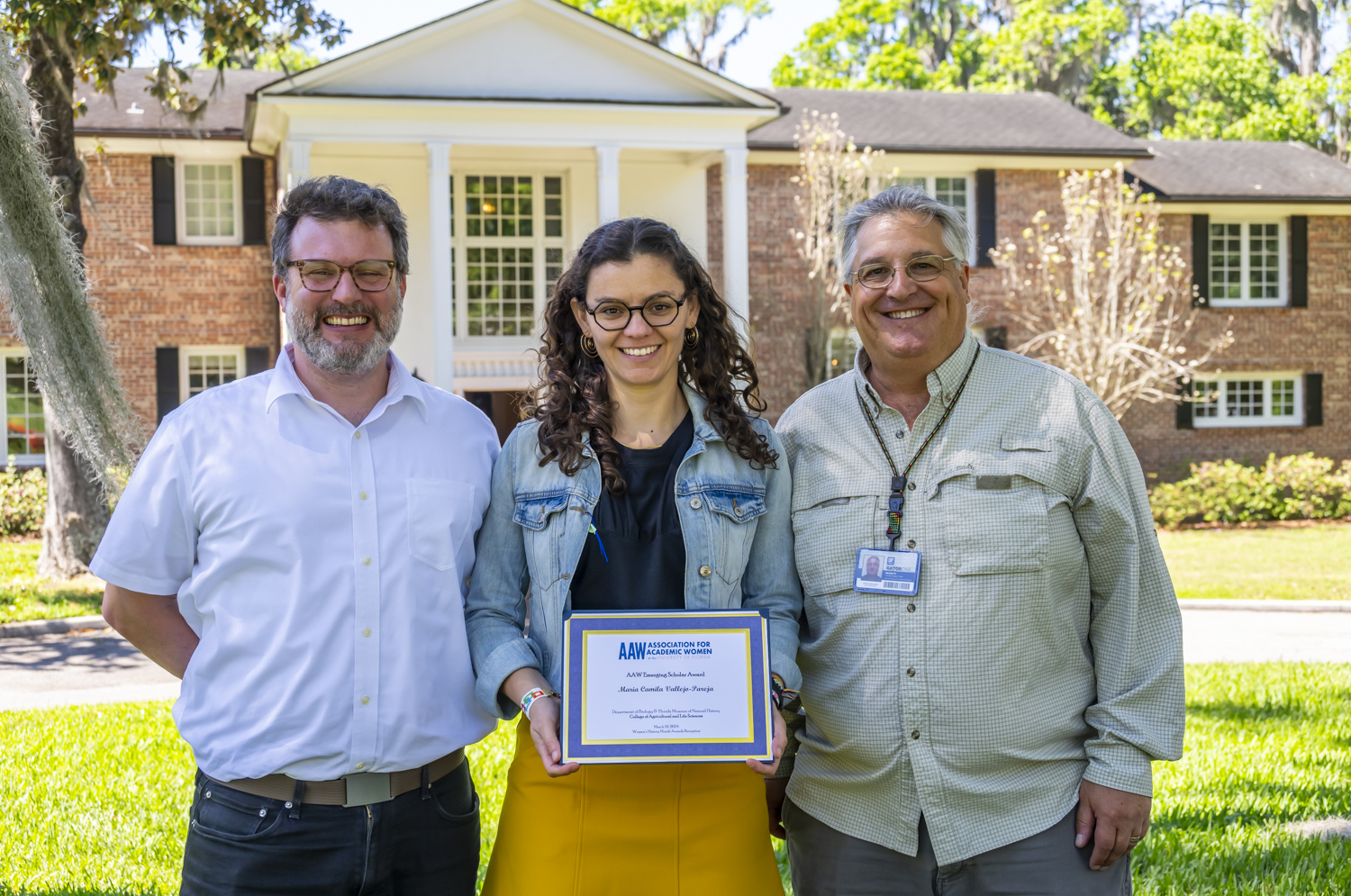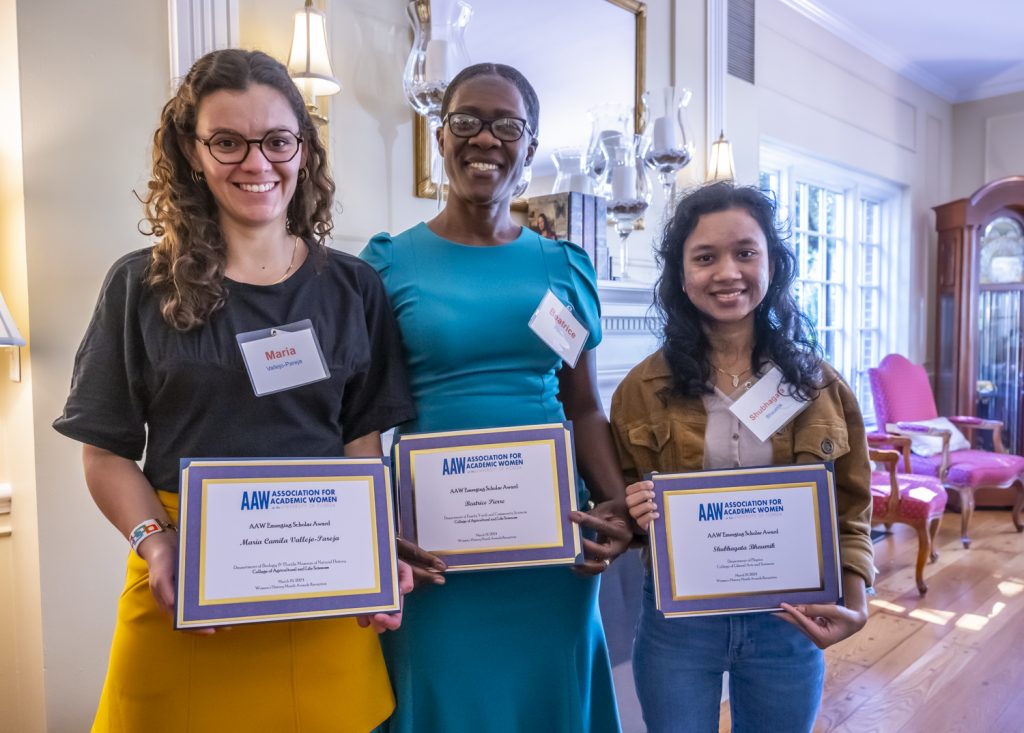María Vallejo-Pareja, a doctoral candidate at the University of Florida, has won an Emerging Scholar Award from the Association for Academic Women. The award recognizes not only outstanding scholarship but also effective outreach and dedication to helping communities.
Vallejo-Pareja researches the evolution of frogs in North and Central America to learn how species and ecosystems change over time. As she began her doctoral work, Vallejo-Pareja noticed that no one working on fossil frogs had come up with a quantitative way to estimate the body size of frogs from individual bones and fossil fragments. Frog fossils are rarely found intact, so she developed her own methodology to estimate size. The award committee was especially impressed by her ability to effectively communicate the significance of her dissertation work.

Florida Museum Photo by Jeff Gage
Studies focused on other types of animals have found a correlation between climatic events and changes in species’ body size — that is, periods with high global temperatures were followed by reptiles evolving to be larger and mammals evolving to be smaller. Because frogs have permeable skin, they are especially sensitive to environmental conditions.
Would frogs become smaller as the air gets drier? Would they become bigger if it gets colder? Vallejo-Pareja’s research forms a foundation of data that would make it possible to answer these types of questions from a paleontological perspective. Vallejo-Pareja is co-advised by David Blackburn, the Florida Museum of Natural History’s curator of herpetology, and Jonathan Bloch, the curator of vertebrate paleontology at the museum.
When she isn’t studying frog fossils, Vallejo-Pareja is working with the Thompson Earth Systems Institute’s Scientist in Every Florida School program. As part of a research assistantship with a National Science Foundation-funded project that brings innovative technology into classrooms, Vallejo-Pareja works with K-12 students and helps foster their excitement for science.
She also serves as the vice president of the Society for Advancement of Chicanos/Hispanics & Native Americans in Science (SACNAS) chapter at the University of Florida. The organization provides mentoring, community-building and volunteering opportunities such as beach and forest cleanup events. It also hosts speakers and offer professional development activities. On April 17, SACNAS will host a competition challenging students to present their dissertation work in three minutes in Spanish.

FLORIDA MUSEUM PHOTO BY JEFF GAGE
Vallejo-Pareja and the four other Emerging Scholar awardees received their certificates from the Association for Academic Women at a Women’s History Month celebration on March 19.
Source: María Vallejo-Pareja, maria.vallejo@ufl.edu
Writer: Jiayu Liang, jiayu.liang@floridamuseum.ufl.edu, 352-294-0452